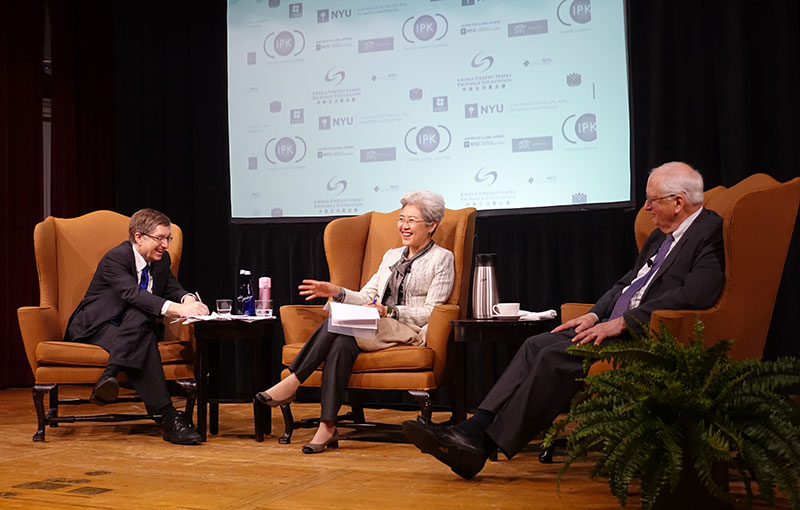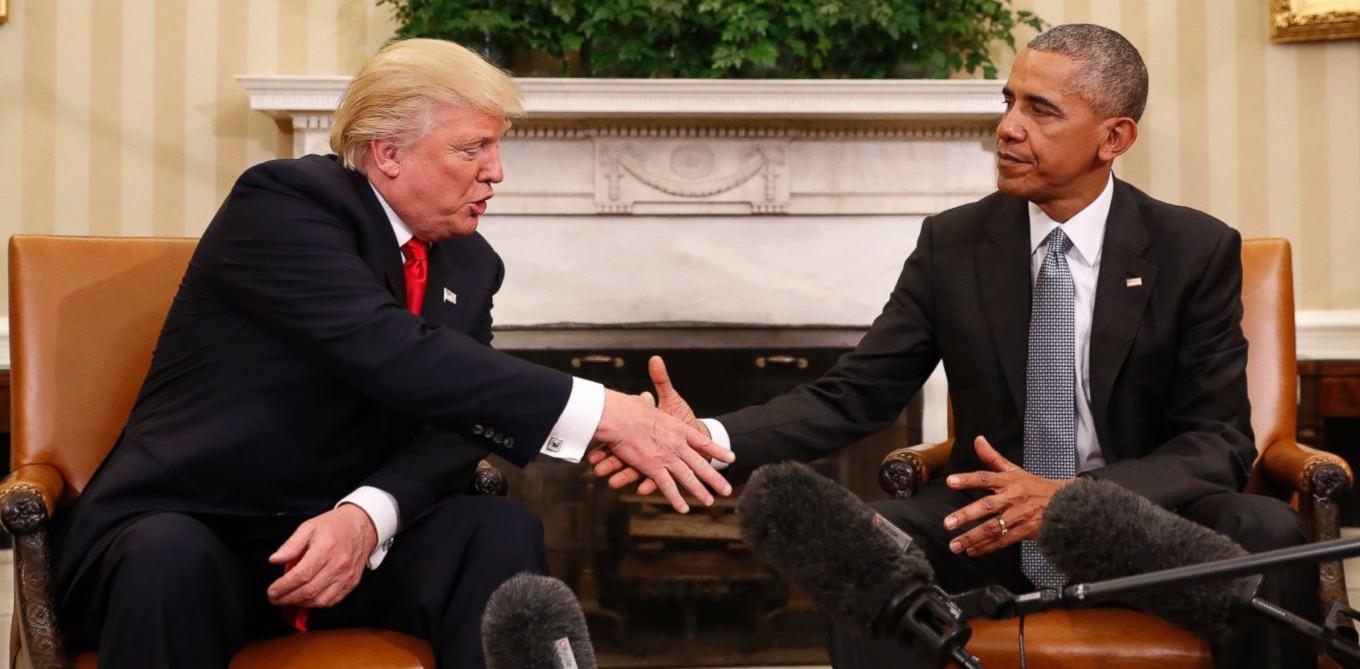
Fu Ying, Founding Chair of Center for International Security and Strategy, Tsinghua University; China's former Vice Minister of Foreign Affairs
Dec 02, 2016
The following are remarks by Madam Fu Ying, chairperson of the Foreign Affairs Committee of the National People's Congress, at the inaugural China-U.S. Forum at
Cui Liru, Former President, China Institutes of Contemporary International Relations
Nov 30, 2016
While the president-elect’s rhetoric suggests an isolationist turn, the reshaping of the US political landscape and Trump’s pragmatic, businesslike approach to decision-making suggest that his policies still defy easy prediction. Demanding that subordinates be highly loyal and obedient, he can be unscrupulous in order to achieve his goals, but at the same time does not lack flexibility in tactics.
Sourabh Gupta, Senior Fellow, Institute for China-America Studies
Nov 30, 2016
Donald Trump’s unabashed pandering to an aggrieved white voter base as well as the long-standing consistency of his (much less-noticed) anti-trade convictions bear implications for Washington’s China policy. As the disillusioned, blue-collar nativist element within slowly defects from a party that remains bound and determined to cater to the interests of its 1% backers, including under the incoming Trump Administration, U.S. politics will enter a period of flux.
Zhu Feng, Dean of School of International Studies, Nanjing University
Nov 28, 2016
While the president-elect’s background might suggest a more commercial approach to world affairs, he is likely to preserve the US’ unchallengeable military advantages and strategic dominance – including some form of the “pivot to Asia”.
Zheng Yu, Professor, Chinese Academy of Social Sciences
Nov 28, 2016
The US has shown no desire to defend the arbitration award with force as hinted by the exercise in the Philippine Sea. Although the American strategic community now sees markedly greater risks of military conflict with China, US decision-makers also don’t believe that the US has the ability to change or stop China’s international conduct by force.
Yin Chengde, Research Fellow, China Foundation for International Studies
Nov 28, 2016
Trump is not ideologically driven and is less biased against China than Clinton, with business ties booming with Chinese partners. Without such ties, US domestic statistics suggest, the US economy would shrink by one-third and prices would go up by one-third — undermining US status as the heart of global financial system. This is a price that the US could ill-afford, and Trump is pretty strong on math.

David Lampton, Hyman Professor and Director of China Studies, Johns Hopkins-SAIS
Nov 28, 2016
The relationship between the two countries is between two societies, not merely between governments or leaders, and that broad spectrum gives it long-term viability. Elevating our shared strategic gaze to the global level will be difficult, but it is essential.

Zhao Gancheng, Senior Fellow, Shanghai Institutes for Int'l Studies
Nov 25, 2016
As Chinese leaders reiterate, the Pacific is wide enough to support the development needs of both China and the U.S. China’s huge development has never relied on challenging American leadership in the international system, and the Chinese achievements have contributed to global economy and prosperity. Eager to work with the U.S. for peace and development, China sees no reason for the American game in China’s periphery.

He Yafei, Former Vice Minister of Foreign Affairs
Nov 24, 2016
Globalization is always an evolving process, with inevitable ups and downs and not moving in a linear fashion. Despite populist reservations in the US and UK, the international community has become intertwined and interdependent, thanks to global free trade and investment. Cooperation to tackle global challenges will continue while more efforts will address the “global governance deficiency” in promoting social justice and fairness such the widening gap between rich and poor both domestically and among nations.
Catharin Dalpino, Adjunct Professor, Seton Hall University Washington Program
Nov 22, 2016
If the Trump administration offers opportunities to improve U.S.-Thai relations, Bangkok will likely move to maximize them. What gains Washington may reap, however, can only be calculated when the shape and direction of a Trump foreign policy are more clearly defined.
Back to Top

- China-US Focus builds trust and understanding between the U.S. and China through open dialogue among thought leaders.
- Our Offerings
- Topics
- Videos
- Podcasts
- Columnists
- Research Reports
- Focus Digest
- Stay Connected
-
Thanks for signing up!
- Get the latest stories from China-US Focus weekly.